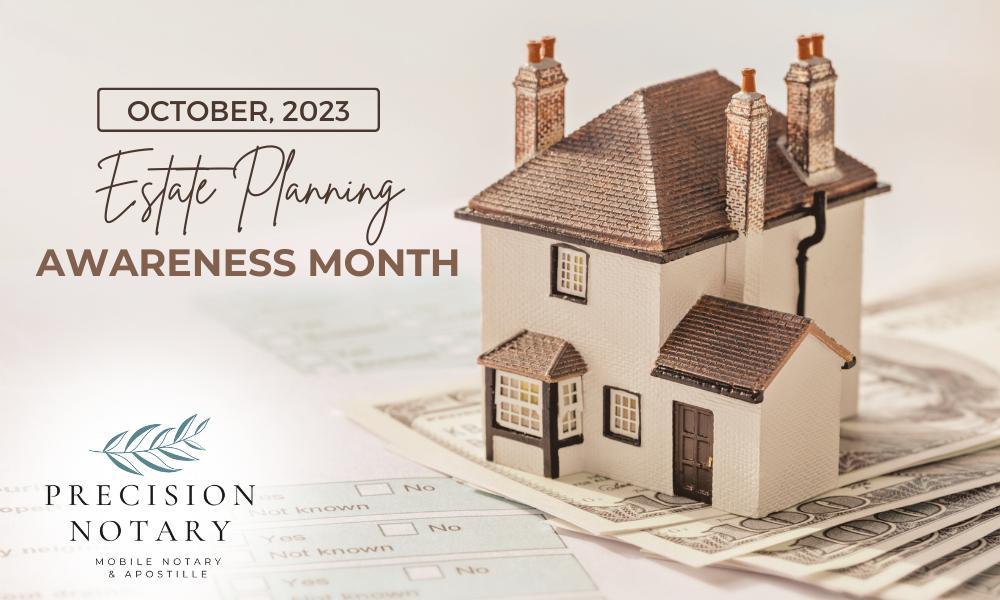As we welcome the crisp autumn days of October, it’s important to remember that it’s not just a month of changing leaves and pumpkin spice lattes. October is also Estate Planning Awareness Month, a time dedicated to highlighting the critical importance of estate planning in our lives. While many people associate estate planning with the wealthy or elderly, the truth is that it is a vital process for individuals and families of all backgrounds and ages. In this article, we will explore the significance of estate planning and why it should be a priority for everyone.
What is Estate Planning?
Estate planning is a comprehensive process that involves the creation of legal documents and strategies to manage your assets, properties, and financial affairs during your lifetime and after your passing. It ensures that your wishes are respected and your assets are distributed according to your preferences. The core components of an estate plan often include a will, a durable power of attorney, a healthcare proxy, and sometimes a living trust.
The Importance of Estate Planning
1. Protecting Your Loved Ones
One of the primary purposes of estate planning is to provide for your loved ones in the event of your incapacity or death. By creating a clear and legally binding plan, you can make sure that your family members, including children, spouse, and other dependents, are taken care of financially and emotionally. This can include designating guardians for minor children, specifying how assets should be distributed, and establishing trusts for their future.
2. Avoiding Probate
Estate planning can help your heirs avoid the often time-consuming and costly probate process. Probate is the legal procedure by which a deceased person’s assets are distributed if they don’t have a valid will or estate plan. It can tie up assets for months or even years and may result in higher legal fees. With proper estate planning, you can minimize the need for probate and ensure a smoother transfer of assets.
3. Minimizing Taxes
Estate planning also includes strategies to minimize the impact of estate taxes. Depending on the size of your estate, you may be subject to federal and state estate taxes, which can significantly reduce the amount your beneficiaries receive. Effective estate planning can help you take advantage of tax-saving tools and strategies to preserve your wealth for your loved ones.
4. Healthcare and End-of-Life Decisions
Estate planning is not just about wealth and property; it also encompasses healthcare decisions. Advanced healthcare directives and living wills allow you to appoint someone to make medical decisions on your behalf if you become incapacitated. This ensures that your preferences regarding medical treatment and end-of-life care are respected.
5. Peace of Mind
Perhaps one of the most valuable aspects of estate planning is the peace of mind it provides. Knowing that your affairs are in order and that your loved ones will be cared for according to your wishes can alleviate a great deal of stress and anxiety. It allows you to focus on living your life with confidence, knowing that your legacy is protected.

As October marks Estate Planning Awareness Month, it’s an ideal time to reflect on the importance of estate planning. It’s a proactive step you can take to protect your loved ones, preserve your wealth, and ensure that your wishes are carried out, even when you’re no longer here. No matter your age or financial status, estate planning is an essential tool for securing your future and leaving a lasting legacy. If you haven’t yet begun your estate planning journey, now is the perfect time to start. We are here to assist you with notary services to ensure your estate planning documents are executed professionally and with care and confidentiality.



Recent Comments